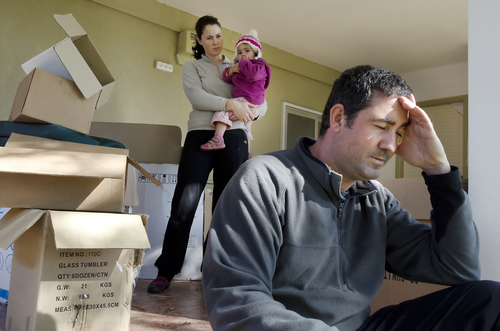
Anguish of Unemployment
Losing a job is quite a blow; both financially and emotionally. While it is devastating to the victims, both women and men, to men it seems more so.
Fact:
“The unemployment rate today sits at 5 percent. That’s half of what it was at the height of the Great Recession. But some say that number hides darker truths about the American workforce, namely, a jobless epidemic among men. Last year, 20 million men of prime working age in the U.S. did not have paid employment. And seven million men between the ages of 25 and 55 are no longer looking for work. Though this trend has been growing for nearly half a century, many argue it hasn’t gotten anywhere near the attention it deserves”.1
BERNSTEIN2 “According to a really great paper by economist Alan Krueger that recently came out, is that men without work tend to be just a lot less happy than women without work. Now, I’m not saying that every women without a job is running around feeling great about it, but if you actually look at social wellbeing, not just health, but also how people feel about their lives, the men are just feeling a lot worse than some of the women
CHIRA3 “I think there’s a good argument to be made that traditionally in our society, men were seen as the provider. It was a very core definition of masculinity so psychologically I know it’s very bruising”.
EBERSTADT4 “In my book, “Men Without Work,” I spend one chapter looking at what do you call time use surveys, how do people spend their time from the moment they wake up till the moment they go to sleep. Men and women who are out of the labor force have characteristic differences and the picture of the guys is pretty dispiriting. Basically, prime age men who are out of the labor force don’t do civil society. They don’t do charitable work or at least they don’t report doing it. They don’t do volunteering, very little religious activity, very little helping out with children or others around the home”.
“There’s a care chasm between women who are out of the workforce and men, what they do, what the men do is watch. They spend, like a full-time job, 2000 hours a year plus, with television, videos, internet, handheld devices. And add to this what Bernstein mentioned, the Alan Krueger paper showing that about half of these guys are on pain pills, and it’s a pretty dispiriting picture”
This is where Counseling on Demand comes in. Men’s feelings of guilt, anxiety, depression, pills will be addressed. We see this as a way of motivating these men to seek the work and the life they desire.
We are online at CounselingonDemand.com (away from prying eyes).
We are only a click away.
References:
1, Susan Page, Diane Rehm Show, NPR, why-millions-of-american-men-have-left-the-workforce-and-how-to-bring-them-back, Thursday, Oct 27 2016 • 11 a.m. (ET)
Ms. Page interviews:
- Jared Bernstein, senior fellow, Center on Budget and Policy Priorities; former chief economist and economic policy adviser for Vice President Joe Biden
- Susan Chira, senior correspondent and editor on gender issues, The New York Times
- 4. Nicholas Eberstadt, an American political economist. He holds the Henry Wendt Chair in Political Economy at the American Enterprise Institute, author, “Men Without Work”